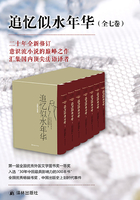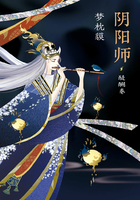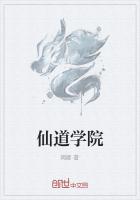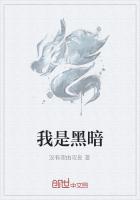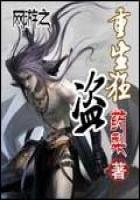To the gallop of four horses she was carriedaway for a week towards a new land, whence they would return no more. They wenton and on, their arms entwined, without a word. Often from the top of amountain there suddenly glimpsed some splendid city with domes, and bridges,and ships, forests of citron trees, and cathedrals of white marble, on whosepointed steeples were storks' nests. They went at awalking-pace because of the great flag-stones, and on the ground there werebouquets of flowers, offered you by women dressed in red bodices. They heardthe chiming of bells, the neighing of mules, together with the murmur ofguitars and the noise of fountains, whose rising spray refreshed heaps of fruitarranged like a pyramid at the foot of pale statues that smiled beneath playingwaters. And then, one night they came to a fishing village, where brown netswere drying in the wind along the cliffs and in front of the huts. It was therethat they would stay; they would live in a low, flat-roofed house, shaded by apalm-tree, in the heart of a gulf, by the sea. They would row in gondolas,swing in hammocks, and their existence would be easy and large as their silkgowns, warm and star-spangled as the nights they would contemplate.
However, in the immensity of this future thatshe conjured up, nothing special stood forth; the days, all magnificent,resembled each other like waves; and it swayed in the horizon, infinite,harmonised, azure, and bathed in sunshine. But the child began to cough in hercot or Bovary snored more loudly, and Emma did not fall asleep till morning,when the dawn whitened the windows, and when little Justin was already in thesquare taking down the shutters of the chemist's shop.
She had sent for Monsieur Lheureux, and hadsaid to him-
“I want a cloak-a large lined cloak with adeep collar.”
“You are going on a journey?” he asked.
“No; but-never mind. I may count on you, mayI not, and quickly?”
He bowed.
“Besides, I shall want,” she went on, “a trunk-not too heavy-handy.”
“Yes, yes, I understand. About three feet bya foot and a half, as they are being made just now.”
“And a travelling bag.”
“Decidedly,” thoughtLheureux, “there's a row onhere.”
“And,” said MadameBovary, taking her watch from her belt, “take this; youcan pay yourself out of it.”
But the tradesman cried out that she waswrong; they knew one another; did he doubt her? What childishness!
She insisted, however, on his taking at leastthe chain, and Lheureux had already put it in his pocket and was going, whenshe called him back.
“You will leave everything at your place. Asto the cloak”-she seemed to be reflecting-“do not bring it either; you can give me the maker's address, and tell him to have it ready for me.”
It was the next month that they were to runaway. She was to leave Yonville as if she was going on some business to Rouen.Rodolphe would have booked the seats, procured the passports, and even havewritten to Paris in order to have the whole mail-coach reserved for them as faras Marseilles, where they would buy a carriage, and go on thence without stoppingto Genoa. She would take care to send her luggage to Lheureux whence it wouldbe taken direct to the “Hirondelle,” so that no one would have any suspicion. And in all this therenever was any allusion to the child. Rodolphe avoided speaking of her; perhapshe no longer thought about it.
He wished to have two more weeks before himto arrange some affairs; then at the end of a week he wanted two more; then hesaid he was ill; next he went on a journey. The month of August passed, and,after all these delays, they decided that it was to be irrevocably fixed forthe 4th September-a Monday.
At length the Saturday before arrived.
Rodolphe came in the evening earlier thanusual.
“Everything is ready?” she asked him.
“Yes.”
Then they walked round a garden-bed, and wentto sit down near the terrace on the kerb-stone of the wall.
“You are sad,” saidEmma.
“No; why?”
And yet he looked at her strangely in atender fashion.
“It is because you are going away?” she went on; “because you are leaving whatis dear to you-your life? Ah! I understand. I have nothing in the world! youare all to me; so shall I be to you. I will be your people, your country; Iwill tend, I will love you!”
“How sweet you are!”he said, seizing her in his arms.
“Really!” she saidwith a voluptuous laugh. “Do you love me? Swear itthen!”
“Do I love you-love you? I adore you, mylove.”
The moon, full and purple-coloured, wasrising right out of the earth at the end of the meadow. She rose quicklybetween the branches of the poplars, that hid her here and there like a blackcurtain pierced with holes. Then she appeared dazzling with whiteness in theempty heavens that she lit up, and now sailing more slowly along, let fall uponthe river a great stain that broke up into an infinity of stars; and the silversheen seemed to writhe through the very depths like a heedless serpent coveredwith luminous scales; it also resembled some monster candelabra all along whichsparkled drops of diamonds running together. The soft night was about them;masses of shadow filled the branches. Emma, her eyes half closed, breathed inwith deep sighs the fresh wind that was blowing. They did not speak, lost asthey were in the rush of their reverie. The tenderness of the old days cameback to their hearts, full and silent as the flowing river, with the softnessof the perfume of the syringas, and threw across their memories shadows moreimmense and more sombre than those of the still willows that lengthened outover the grass. Often some night-animal, hedgehog or weasel, setting out on thehunt, disturbed the lovers, or sometimes they heard a ripe peach falling allalone from the espalier.
“Ah! what a lovely night!” said Rodolphe.
“We shall have others,” replied Emma; and, as if speaking to herself: “Yet, it will be good to travel. And yet, why should my heart be soheavy? Is it dread of the unknown? The effect of habits left? Or rather-? No;it is the excess of happiness. How weak I am, am I not? Forgive me!”
“There is still time!” he cried. “Reflect! perhaps you may repent!”
“Never!” she criedimpetuously. And coming closer to him: “What ill couldcome to me? There is no desert, no precipice, no ocean I would not traversewith you. The longer we live together the more it will be like an embrace,every day closer, more heart to heart. There will be nothing to trouble us, nocares, no obstacle. We shall be alone, all to ourselves eternally. Oh, speak!Answer me!”
At regular intervals he answered, “Yes-Yes-” She had passed her hands throughhis hair, and she repeated in a childlike voice, despite the big tears whichwere falling, “Rodolphe! Rodolphe! Ah! Rodolphe! dearlittle Rodolphe!”
Midnight struck.
“Midnight!” said she.“Come, it is to-morrow. One day more!”
He rose to go; and as if the movement he madehad been the signal for their flight, Emma said, suddenly assuming a gay air-
“You have the passports?”
“Yes.”
“You are forgetting nothing?”
“No.”
“Are you sure?”
“Certainly.”
“It is at the Hételde Provence, is it not, that you will wait for me at midday?”
He nodded.
“Till to-morrow then!” said Emma in a last caress; and she watched him go.
He did not turn round. She ran after him,and, leaning over the water's edge between thebulrushes-
“To-morrow!” shecried.
He was already on the other side of the riverand walking fast across the meadow.
After a few moments Rodolphe stopped; andwhen he saw her with her white gown gradually fade away in the shade like aghost, he was seized with such a beating of the heart that he leant against atree lest he should fall.
“What an imbecile I am!” he said with a fearful oath. “No matter!She was a pretty mistress!”
And immediately Emma'sbeauty, with all the pleasures of their love, came back to him. For a moment hesoftened; then he rebelled against her.
“For, after all,” heexclaimed, gesticulating, “I can't exile myself have a child on my hands.”
He was saying these things to give himselffirmness.
“And besides, the worry, the expense! Ah! no,no, no, no! a thousand times no! That would be too stupid.”
Chapter 13
No sooner was Rodolphe at home than he satdown quickly at his bureau under the stag's head thathung as a trophy on the wall. But when he had the pen between his fingers, hecould think of nothing, so that, resting on his elbows, he began to reflect.Emma seemed to him to have receded into a far-off past, as if the resolution hehad taken had suddenly placed a distance between them.
To get back something of her, he fetched fromthe cupboard at the bedside an old Rheims biscuit-box, in which he usually kepthis letters from women, and from it came an odour of dry dust and witheredroses. First he saw a handkerchief with pale little spots. It was ahandkerchief of hers. Once when they were walking her nose had bled; he hadforgotten it. Near it, chipped at all the comers, was a miniature given him byEmma: her toilette seemed to him pretentious, and her languishing look in theworst possible taste. Then, from looking at this image and recalling the memoryof its original, Emma's features little by little grewconfused in his remembrance, as if the living and the painted face, robbing oneagainst the other, had effaced each other. Finally, he read some of herletters; they were full of explanations relating to their journey, short,technical, and urgent, like business notes. He wanted to see the long onesagain, those of old times. In order to find them at the bottom of the box,Rodolphe disturbed all the others, and mechanically began rummaging amidst thismass of papers and things, finding pell-mell bouquets, garters, a black mask,pins, and hair-hair! dark and fair, some even, catching in the hinges of thebox, broke when it was opened.
Thus dallying with his souvenirs, he examinedthe writing and the style of the letters, as varied as their orthography. Theywere tender or jovial, facetious, melancholy; there were some that asked forlove, others that asked for money. A word recalled faces to him, certaingestures, the sound of a voice; sometimes, however, he remembered nothing atall.
In fact, these women, rushing at once intohis thoughts, cramped each other and lessened, as reduced to a uniform level oflove that equalised them all. So taking handfuls of the mixed-up letters, heamused himself for some moments with letting them fall in cascades from hisright into his left hand. At last, bored and weary, Rodolphe took back the boxto the cupboard, saying to himself, “What a lot ofrubbish!” Which summed up his opinion; for pleasures,like schoolboys in a school courtyard, had so trampled upon his heart that nogreen thing grew there, and that which passed through it, more heedless thanchildren, did not even, like them, leave a name carved upon the wall.
“Come,” said he, “let's begin.”
He wrote:
Courage, Emma! courage! I would not bringmisery into your life.
“After all, that'strue,” thought Rodolphe. “I amacting in her interest; I am honest.”
Have you carefully weighed your resolution?Do you know to what an abyss I was dragging you, poor angel? No, you do not, doyou? You were coming confident and fearless, believing in happiness in thefuture. Ah! unhappy that we are-insensate!
Rodolphe stopped here to think of some goodexcuse.
“If I told her all my fortune is lost? No!Besides, that would stop nothing. It would all have to be begun over againlater on. As if one could make women like that listen to reason!” He reflected, then went on:
I shall not forget you, oh believe it; and Ishall ever have a profound devotion for you; but some day, sooner or later,this ardour (such is the fate of human things) would have grown less, no doubt.Lassitude would have come to us, and who knows if I should not even have hadthe atrocious pain of witnessing your remorse, of sharing it myself, since Ishould have been its cause? The mere idea of the grief that would come to youtortures me, Emma. Forget me! Why did I ever know you? Why were you sobeautiful? Is it my fault? O my God! No, no! Accuse only fate.
“That's a word thatalways tells,” he said to himself.
Ah, if you had been one of those frivolouswomen that one sees, certainly I might, through egotism, have tried anexperiment, in that case without danger for you. But that delicious exaltation,at once your charm and your torment, has prevented you from understanding,adorable woman that you are, the falseness of our future position. Nor had Ireflected upon this at first, and I rested in the shade of that ideal happinessas beneath that of the manchineel tree, without foreseeing the consequences.
“Perhaps she'll thinkI'm giving it up from avarice. Ah, well! So much theworse; it must be stopped!”
The world is cruel, Emma. Wherever we mighthave gone, it would have persecuted us. You would have had to put up withindiscreet questions, calumny, contempt, insult perhaps. Insult to you! Oh! AndI, who would place you on a throne! I who bear with me your memory as atalisman! For I am going to punish myself by exile for all the ill I have doneyou. I am going away. Whither I know not. I am mad. Adieu! Be good always.Preserve the memory of the unfortunate who has lost you. Teach my name to yourchild; let her repeat it in her prayers.
The wicks of the candles flickered. Rodolphegot up to, shut the window, and when he had sat down again-
“I think it's allright. Ah! and this for fear she should come and hunt me up.”
I shall be far away when you read these sadlines, for I have wished to flee as quickly as possible to shun the temptationof seeing you again. No weakness! I shall return, and perhaps later on we shalltalk together very coldly of our old love. A Dieu!
And there was a last “adieu” divided into two words! “ADieu!” which he thought in very excellenttaste.
“Now how am I to sign?” he said to himself. “'Yours devotedly?' No! 'Your friend?'Yes, that's it.”
“YOUR FRIEND.”
He re-read his letter. He considered it verygood.
“Poor little woman!”he thought With emotion. “She'llthink me harder than a rock. There ought to have been some tears on this; but Ican't cry; it isn't my fault.” Then, having emptied some water into a glass, Rodolphe dipped hisfinger into it, and let a big drop fall on the paper, that made a pale stain onthe ink. Then looking for a seal, he came upon the one “Amor nel cor”.
“That doesn't at allfit in with the circumstances. Pshaw! never mind!”
After which he smoked three pipes and went tobed.
The next day when he was up (at about two o'clock-he had slept late), Rodolphe had a basket of apricots picked.He put his letter at the bottom under some vine leaves, and at once orderedGirard, his ploughman, to take it with care to Madame Bovary. He made use ofthis means for corresponding with her, sending according to the season fruitsor game.
“If she asks after me,” he said, “you will tell her that I havegone on a journey. You must give the basket to her herself, into her own hands.Get along and take care!”
Girard put on his new blouse, knotted hishandkerchief round the apricots, and walking with great heavy steps in histhick iron-bound galoshes, made his way to Yonville.
Madame Bovary, when he got to her house, wasarranging a bundle of linen on the kitchen-table with Fé1icité.
“Here,” said theploughboy, “is something for you-from the master.”
She was seized with apprehension, and as shesought in her pocket for some coppers, she looked at the peasant with haggardeyes, while he himself looked at her with amazement, not understanding how sucha present could so move anyone. At last he went out. Fé1icité remained. She could bear it no longer; she ran into the sittingroom as if to take the apricots there, overturned the basket, tore away theleaves, found the letter, opened it, and, as if some fearful fire were behindher, Emma flew to her room terrified.
Charles was there; she saw him; he spoke toher; she heard nothing, and she went on quickly up the stairs, breathless,distraught, dumb, and ever holding this horrible pl-ece of paper, that crackledbetween her fingers like a plate of sheet-iron. On the second floor she stoppedbefore the attic door, which was closed.
Then she tried to calm herself; she recalledthe letter; she must finish it; she did not dare to. And where? How? She wouldbe seen! “Ah, no! here,” shethought, “I shall be all right.”
Emma pushed open the door and went in.
The slates threw straight down a heavy heatthat gripped her temples, stifled her; she dragged herself to the closedgarret-window. She drew back the bolt, and the dazzling light burst in with aleap.
Opposite, beyond the roofs, stretched theopen country till it was lost to sight. Down below, underneath her, the villagesquare was empty; the stones of the pavement glittered, the weathercocks on thehouses were motionless. At the comer of the street, from a lower storey, rose akind of humming with strident modulations. It was Binet turning.
She leant against the embrasure of thewindow, and reread the letter with angry sneers. But the more she fixed herattention upon it, the more confused were her ideas. She saw him again, heardhim, encircled him with her arms, and throbs of her heart, that beat againsther breast like blows of a sledge-hammer, grew faster and faster, with unevenintervals. She looked about her with the wish that the earth might crumble intopieces. Why not end it all? What restrained her? She was free. She advanced,looking at the paving-stones, saying to herself, “Come!come!”
The luminous ray that came straight up frombelow drew the weight of her body towards the abyss. It seemed to her that theground of the oscillating square went up the walls and that the floor dipped onend like a tossing boat. She was right at the edge, almost hanging, surroundedby vast space. The blue of the heavens suffused her, the air was whirling inher hollow head; she had but to yield, to let herself be taken; and the hummingof the lathe never ceased, like an angry voice calling her.
“Emma! Emma!” criedCharles.
She stopped.
“Wherever are you? Come!”
The thought that she had just escaped fromdeath almost made her faint with terror. She closed her eyes; then she shiveredat the touch of a hand on her sleeve; it was Fé1icité.
“Master is waiting for you, madame; the soupis on the table.”
And she had to go down to sit at table.
She tried to eat. The food choked her. Thenshe unfolded her napkin as if to examine the dams, and she really thought ofapplying herself to this work, counting the threads in the linen. Suddenly theremembrance of the letter returned to her. How had she lost it? Where could shefind it? But she felt such weariness of spirit that she could not even invent apretext for leaving the table. Then she became a coward; she was afraid ofCharles; he knew all, that was certain! Indeed he pronounced these words in astrange manner:
“We are not likely to see Monsieur Rodolphesoon again, it seems.”
“Who told you.'?” she said, shuddering.
“Who told me!” hereplied, rather astonished at her abrupt tone. “Why,Girard, whom I met just now at the door of the CaréFrancais. He has gone on a journey, or is to go.”
She gave a sob.
“What surprises you in that? He absentshimself like that from time to time for a change, and, mafoi, I think he's right, when one has a fortune and is a bachelor. Besides, he hasjolly times, has our friend. He's a bit of a rake.Monsieur Langlois told me-”
He stopped for propriety's sake because the servant came in. She put back into the basket theapricots scattered on the sideboard. Charles, without noticing his wife's colour, had them brought to him, took one, and bit into it.
“Ah! perfect!” saidhe; “just taste!”
And he handed her the basket, which she putaway from her gently.
“Do just smell! What an odour!” he remarked, passing it under her nose several times.
“I am choking,” shecried, leaping up. But by an effort of will the spasm passed; then-
“It is nothing,” shesaid, “it is nothing! It is nervousness. Sit down andgo on eating.” For she dreaded lest he should beginquestioning her, attending to her, that she should not be left alone.
Charles, to obey her, sat down again, and hespat the stones of the apricots into his hands, afterwards putting them on hisplate.
Suddenly a blue tilbury passed across thesquare at a rapid trot. Emma uttered a cry and fell back rigid to the ground.
In fact, Rodolphe, after many reflections,had decided to set out for Rouen. Now, as from La Huchette to Buchy there is noother way than by Yonville, he had to go through the village, and Emma hadrecognised him by the rays of the lanterns, which like lightning flashedthrough the twilight.
The chemist, at the tumult which broke out inthe house ran thither. The table with all the plates was upset; sauce, meat,knives, the salt, and cruet-stand were strewn over the room; Charles wascalling for help; Berthe, scared, was crying; and Fé1icité, whose hands trembled, was unlacing her mistress, whose whole bodyshivered convulsively.
“I'll run to mylaboratory for some aromatic vinegar,” said thedruggist.
Then as she opened her eyes on smelling thebottle -
“I was sure of it,”he remarked; “that would wake any dead person for you!”
“Speak to us,” saidCharles; “collect yourself; it is your Charles, wholoves you. Do you know me? See! here is your little girl! Oh, kiss her!”
The child stretched out her arms to hermother to cling to her neck. But turning away her head, Emma said in a brokenvoice “No, no! no one!”
She fainted again. They carried her to herbed. She lay there stretched at full length, her lips apart, her eyelidsclosed, her hands open, motionless, and white as a waxen image. Two streams oftears flowed from her eyes and fell slowly upon the pillow.
Charles, standing up, was at the back of thealcove, and the chemist, near him, maintained that meditative silence that is becomingon the serious occasions of life.
“Do not be uneasy,”he said, touching his elbow; “I think the paroxy** ispast.”
“Yes, she is resting a little now,” answered Charles, watching her sleep. “Poorgirl! poor girl! She had gone off now!”
Then Homais asked how the accident had comeabout. Charles answered that she had been taken ill suddenly while she waseating some apricots.

